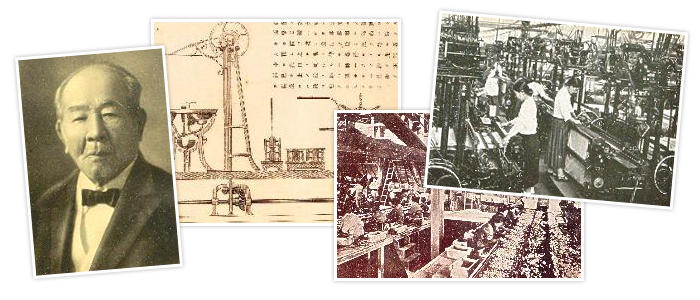![]()
Chapter 2: Industry
In 1858, economic relations began between Japan and France as the starting point of the Japan-France Treaty of Amity and Commerce.
At the time, industry was rapidly developing in France under Emperor Napoléon III (1808-1873, reigned 1852-1870) and there was a desire for new overseas markets. In 1864, the Léon Roches (1809-1901), who was appointed as the resident minister to Japan, strengthened ties with the Shogunate government in opposition to Britain, which supported the Satsuma and Choshu Domains, and provided both capital and technological support for the construction of the Yokosuka Shipyards.
After the Meiji Restoration, the policy to Increase Production and Promote Industry was maintained, mainly by the Ministry of Engineering, which was established in 1870, and there were continued attempts to introduce skills from France, particularly in the silk manufacturing and mining fields. There were also private sector drives to have individuals study abroad in France in order to learn textile production and winemaking skills. SHIBUSAWA Eiichi (1840-1931), who travelled to France during the last days of the Tokugawa shogunate and witnessed the western European industrial societies first hand, also played a significant role in the overall development of Japanese capitalism.









